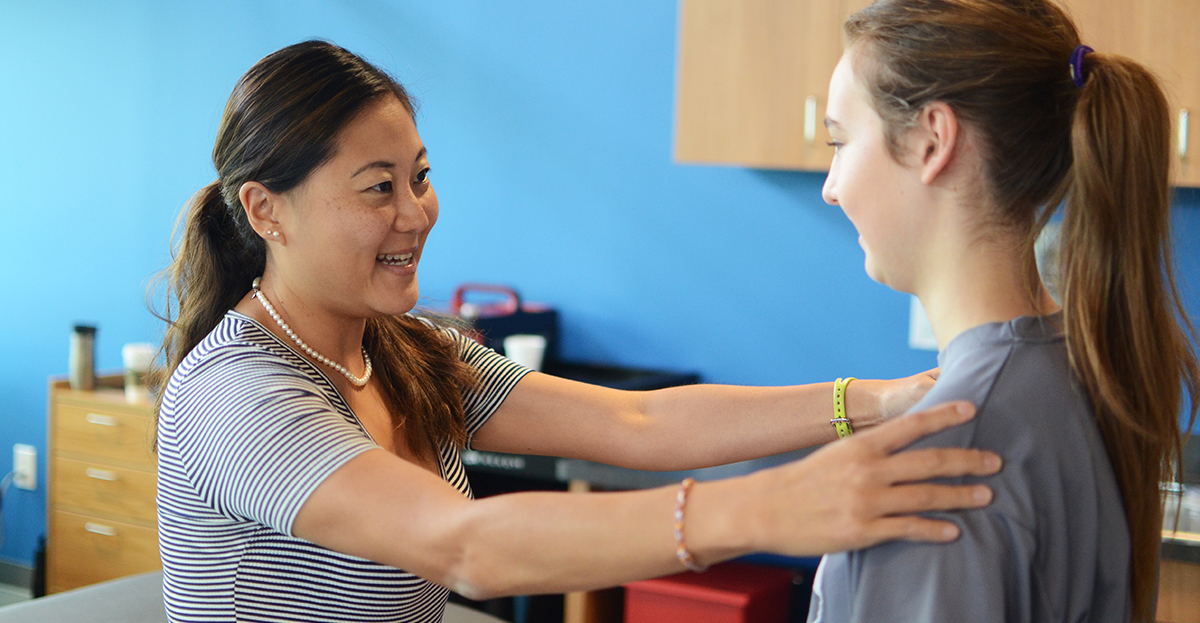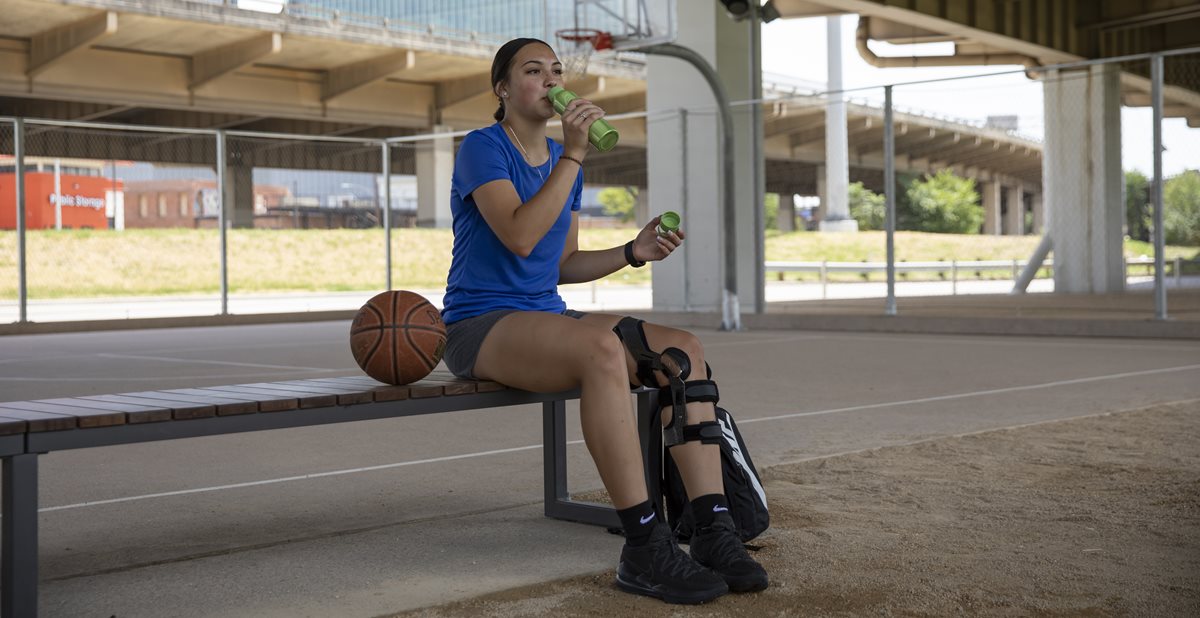
Apr 27, 2021 / Sports Medicine
Female Athlete Triad – What You Need to Know
Female athlete triad is a medical condition that can affect active girls and young women. As the name suggests, there are three parts to this condition. Although the three parts may occur at the same time or be interrelated, the signs and symptoms may not occur at the same time. Based on research, specialists diagnose by evaluating each of the three areas for possible problems. Further evaluation is needed with the presence of any of these problems.
The risk for these conditions increases when athletes do not consume enough calories to restore what they used during demanding work outs. As a result, a young athlete’s bone, reproductive and heart health can be negatively affected.
Normal Eating > Disordered Eating > Eating Disorder
Each athlete has personal nutrition needs for typical growth, training and competition. An athlete may restrict calories or make other choices to prevent weight gain or to reach a specific weight.
Poor eating habits can affect normal body processes. This can lead to worse performance when an athlete is really trying to improve performance. The focus in treatment for this condition is to increase the number of calories, or food and drink consumption, so that the athlete has more available energy.
Changes in Menstrual Cycle
Normal Menses > Abnormal Menses > Absent Menses
Menses is a term for the menstrual cycle or period. Young girls who are very lean, train a lot or do not have a well-balanced diet may start their cycle later than others. Some may start their cycle at a normal time, however, changes to diet and exercise habits may cause the cycle to be less frequent or stop during times of heavy training. These abnormal menstrual cycles can have a negative effect on a female athlete’s bone health, cholesterol levels and reproductive health (childbearing).
Osteoporosis and Weak Bones
Healthy Bone > Mild Bone Changes > Osteoporosis
Getting enough calcium and vitamin D is important for building strong bones in teens. Therefore, athletes with disordered eating or inadequate energy to fuel the body are at a high risk for bone injuries. These often show up as stress fractures, which are small breaks in the bone that are difficult to detect. Stress fractures can cause pain and often requires time off from an activity.
Proper nutrition and weight-bearing exercises can have a positive effect on bone health for children and teens. Therefore, having a well-balanced diet and exercise is important for building strong bones.
Who is at risk?
The signs described above result when energy intake (consuming calories) and expenditure (training or competing) are imbalanced. The athlete does not have enough energy available to meet the demands of their training or carry out normal body functions.
Those who may be at increased risk for the female athlete triad include girls who are:
- In endurance sports such as cross country running.
- In elite sports or gymnastics, which includes high volume training.
- In activities where figure or weight is emphasized such as dancing or figure skating.
- Are under performance pressure from coaches or parents.
Research has focused mainly on female athletes, however, males may have similar signs and symptoms.
The Female Athlete Triad Coalition agrees on a list of concerning signs and symptoms in female athletes.
If you notice these in your young athlete or her teammates, notify your medical provider:
- Extreme weight loss or excessive worry about weight.
- Absent, delayed or irregular menstrual cycles (periods).
- Recurrent stress injuries such as stress reaction or stress fractures.
- Restrictive or unusual eating behaviors.
Athletes 11-17 years old are in an important phase of growth and bone development. It is during this window that bones will achieve more than 90 percent of their peak bone mass. Early recognition and prevention of complications is important for long-term bone health and overall wellness. Treatment for this condition may involve other specialists including a psychologist and a dietitian.
Print the PDF (English I Spanish)
Learn more about pediatric sports medicine.



